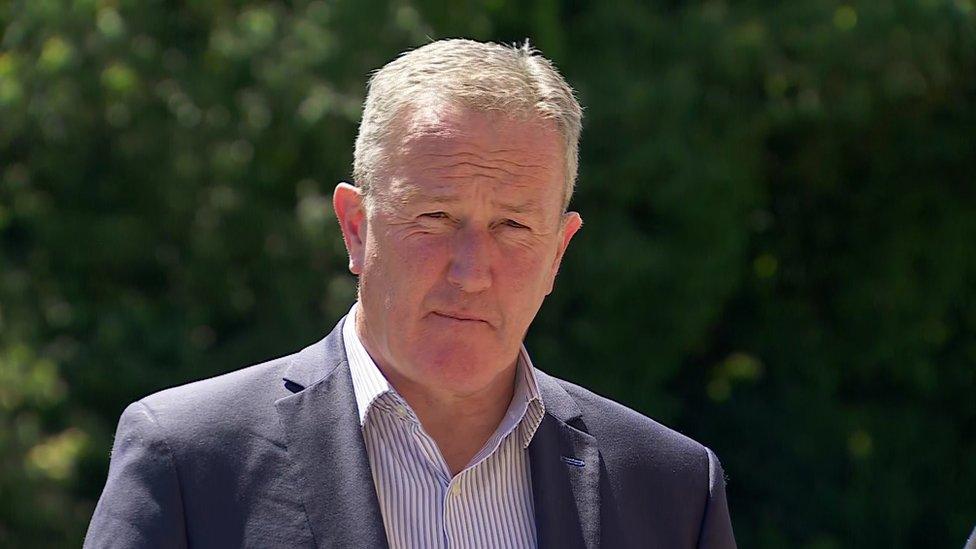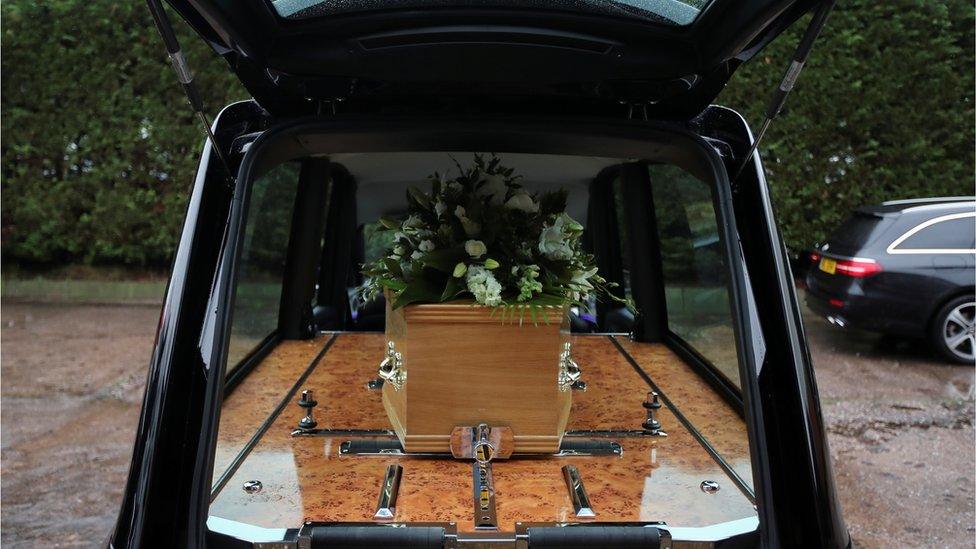Funerals in Northern Ireland 'at risk of delay' unless laws extended
- Published

A date for a person's funeral cannot be confirmed until after their death has been registered
Funerals in Northern Ireland are at risk of delay unless laws to ease the death management process are extended, Stormont has been warned.
The legislation was introduced during the Covid pandemic to allow electronic certification instead of paper-based.
But without a functioning government it will expire on 24 September.
BBC News NI has seen a letter from the National Association of Funeral Directors to Stormont's finance department.
In it, the association's chief executive officer, Jon Levett, said allowing the deadline to lapse would have a "significantly negative effect" on how deaths are certified and processed in Northern Ireland.
It would mean a return to an in-person and paper-based system from 25 September.
'Increased pressure'
Mr Levett warned that would lead to "more pressure on our medical colleagues to complete the various forms".
And he added that it "will create increased pressure on funeral directors to ensure all relevant paperwork" is processed on time.
The letter continued: "With each of these individual processes, any issues that may arise will not be easily corrected.

Conor Murphy says officials are exploring how to introduce new legislation "as promptly as possible"
"We are convinced this would have a significantly negative effect on the death management process, which would inevitably lead to delays in allowing families to bury their loved one."
When someone dies, a date for the funeral cannot be confirmed until after the death has been registered.
The association said it recognised that without a functioning government at Stormont it may be difficult to extend the legislation.
But Mr Levett added that it was "vitally important" to do so in order to avoid "the kind of delays being experienced in England and Wales", where the emergency Covid legislation was not retained after March 2022.
In response, Northern Ireland Finance Minister Conor Murphy said it had been his intention to extend the laws for another six months, with the agreement of other ministers.
But he added: "It does not look like this will be possible as there is currently no functioning assembly and the provisions will therefore fall."
He said he understood how beneficial changes to the system had proved over the past two years and that officials were exploring how to introduce new legislation "as promptly as possible".
Related topics
- Published27 March 2022

- Published17 January 2022

- Published21 January 2021
